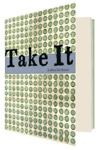If you take a broad squint at our nation’s new poets you can find two general strategies: poets who are carrying the torch, and poets who are using it to start fires. And then we have Joshua Beckman. He seems to be doing everything. I don’t just mean his varied output, the way he experiments with form and improvisation, unafraid to write an epic or play a parlor game, getting old-fashionedly formal or tossing off greeting-card one-liners, translating Slovenian poets, and engaging in onstage tomfoolery. I mean that his best poems manage to occupy the farthest corners of poetry and make them all feel like the same thing. He covers all the bases, and yet he’s not some show-offy triathlete. It’s not even that he’s managed to weave together the experimental and the formal, the careful and the tossed-off, the heartbreaking and the silly. They were already woven together. Beckman just shines a light on the cloth.
The book’s voice is one of unwavering wisdom, but the tone is unfashionably sad. (It’s often said that it’s hope, wide-eyed and sunny, that’s the unfashionable thing, but I’ve heard that so many times that it’s sounding like musicians who think playing loud is rebellious.) In Take It, his best book so far, Beckman happily owns his pessimism:
Simply put, we are a failed and ruined people
incapable of even silence. We are equal to nothing.
The earth given to us, we have lost even that.
Big eaters of America, I join you in your parade.
Let us be watched and let us be spoken of.
For today fascination is gone and even vanity
is undervalued. I have often misunderstood destiny,
I will misunderstand it no more.
It’s a refreshing turnaround here, a sad, almost scornful evaluation moving on to a call-to-arms that at first sounds sarcastic (“I join you in your parade”) but comes around to a sturdy and honest perseverance that neither turns a blind eye to the world’s ugliness nor triumphs over it, but incorporates all of our worst impulses (“even vanity is undervalued”) into a way forward. I’ve seen all these pieces in poetry lately, but never all of them in eight measured lines, without crowding or non sequitur.
Throughout the proceedings Beckman tosses in the ceremonial (“Through God’s grace / the little drops came down, and the spectacle /of human science blabbered on”) with the jaunty (“Dear Angry Mob, / Oak Wood Trail is closed to you”), the opaque (“Red, the want, the body, slowly / all perturbant drapes fall upon your cheek”) with the straightforward (“… he wants all the things / that have happened recently / not to have happened”), but all the while he reminds us that this isn’t just play but something inevitable and necessary:
Weigh, judge, and discard while still these things have meaning,
for soon they will not, and then where will you be.
It’s a book that shrugs into importance, reminding us of the tiny vastness of the whole poetic enterprise. Easy to read and impossible to stop reading, Take It is the sort of book you might not have known you were waiting for: not somebody’s exploration or explanation of the world, but a reminder that we’re all in it, already participating, with every word we read. This is why people read books. You should read this one.





